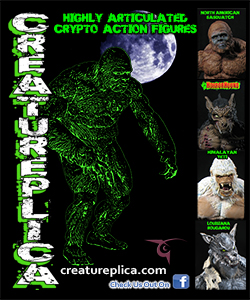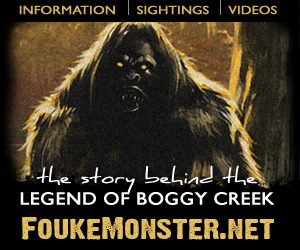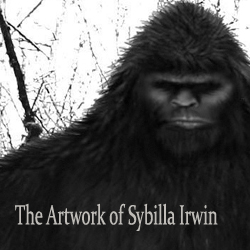The Life of a Cryptozoologist: Hunting Monsters
Posted by: Adam Davies on December 10th, 2013
This article appears in all the international publications of the Metro. In it, I discuss the importance of analysing evidence and cryptids carefully. I do however recognise that there will always be a place for lovable eccentrics in the field.

Adam Davies is serious about a job that some might find silly.
As one of the world’s leading cryptozoologists, Adam Davies has pursued the death worm of Mongolia and the Mokele-mbembe lake monster of Congo, the Sasquatch and the Yeti. The British explorer spoke to us about the need to make his passion more respectable.
What is cryptozoology?
It’s basically looking for unknown or undiscovered animals, and that for me is about working with credible scientists. It’s a broad sphere and you have to dismiss some of it. If someone says they saw a unicorn in their garden I’m not interested, but if they saw a rare primate in the jungle it’s game on.
Where are your hunting grounds?
In the last year I’ve looked for Bigfoot in the US, and the Orang Pendek — the Sumatran ape-man. I’ve looked for the Congolese dinosaur for the BBC and the Yeti in Nepal. I’ve been almost anywhere on the planet, mostly on my own time and money.
What is your number 1 ambition?
I’ve always been interested in bipedal primates and if I could prove the Orang Pendek that would be the find of the century. We’ve come close to proving it with hairs and prints, most skeptics would accept it’s highly plausible.
Are these species being covered up?
I don’t believe so as I have worked with governments on my projects. The problem is the species are very rare and elusive, as you would be if you were under threat.
Some of cryptozoology is just bizarre right?
It’s a broad area and that’s why it’s important to work with credible scientists to corroborate findings. We need more rigor in the field, such as through sending hairs for DNA tests. But there is also a place for eccentricity.
About Adam Davies
I am an explorer, adventurer, and a cryptozoologist. I've traveled to some of the most remote and dangerous parts of the world in search yet-to-be-discovered animal species. From the dense jungles of the Congo and Sumatra, to the deserts of Mongolia, and the mountains of Nepal, I have traveled the world in search of scientific evidence of the existence of these creatures.









Two things:
1) When ‘monsters’ stops being used in a cryptozoological context we will know we are getting somewhere.
2) One can never discount anything. That is anything, even the report of the unicorn in one’s garden. Doing so perpetuates science’s crippling disease (really one more of scientists than of science): denial. Denial does science no good.
Here’s how one treats unicorns:
Well, one might want to report that to the Unicorn Database. It’s at http://www.Can‘tFindOne.com. Which presents a problem. I’m not saying you didn’t see one. I’m saying that there isn’t a whole lot to get scientists interested in looking right now. If you want to confirm this, it may be pretty much up to you. Do you need to do that? Me personally, I’d treat it as a wonderful experience, were I you; people do see amazing things. Why require anyone else to believe you? Aren’t you LUCKIER than most people? Do you feel crazy? Maybe you saw one; I mean, the idea had to come from somewhere, right…?
Until one knows, one doesn’t. And isn’t it more than slightly irrational to hold as real something that one INSISTS CANNOT BE PROVEN, like, say, a NEGATIVE…?
Just sayin’. 😉
I think the term Monsters is just a Journalistic euphamism. It’s not a term I apply. Thanks for the info on the database DWA. I will check it out.